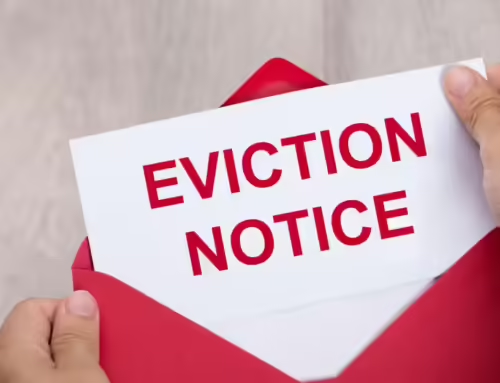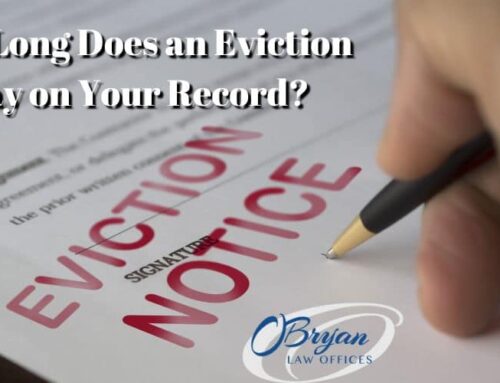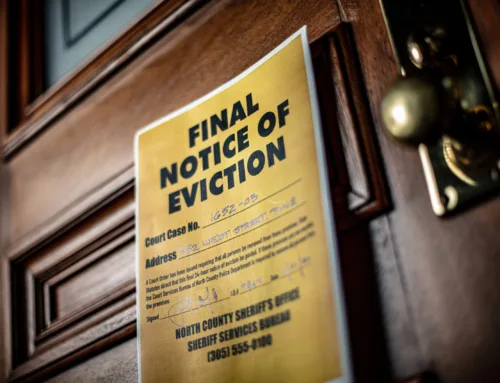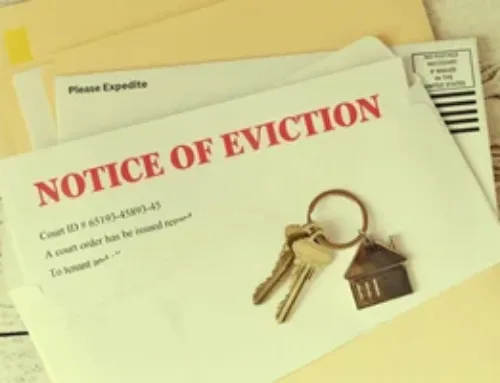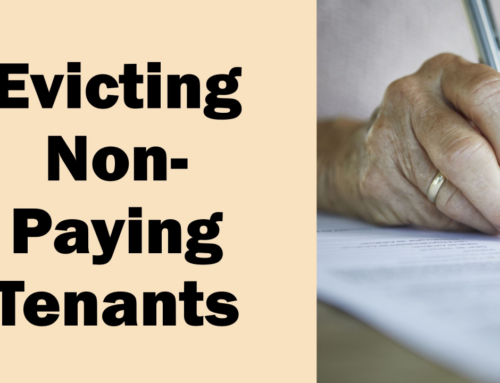Evicting a tenant can be one of the most challenging aspects of being a landlord. It often involves navigating complex legal processes, managing emotions, and ensuring that all actions are compliant with local laws. However, with careful planning and knowledge of the eviction process, landlords can approach this task effectively and successfully. In this blog, we’ll provide essential tips for landlords looking to evict a tenant while minimizing stress and legal complications.
If you want to know” How to handle abandoned property after eviction“you can check this blog .
Understanding the Eviction Process
Before diving into the tips, it’s crucial to understand that eviction is a legal process. It begins with valid reasons for eviction, typically outlined in the lease agreement, and must follow specific legal procedures to be enforceable. Here’s a step-by-step guide to help you navigate the eviction process.
Tips for Successfully Evicting a Tenant
1. Know Your Local Laws
Every jurisdiction has specific laws governing the eviction process, including the grounds for eviction, notice requirements, and court procedures. Research and understand the laws applicable to your location to ensure compliance and avoid potential legal pitfalls.
2. Have a Valid Reason for Eviction
Ensure you have a valid reason for the eviction, which typically falls into the following categories:
- Non-payment of rent: If a tenant fails to pay rent on time, it’s a legitimate ground for eviction.
- Violation of lease terms: This could include subletting without permission, having unauthorized pets, or damaging property.
- Property damage: If the tenant causes significant damage beyond normal wear and tear, you may have grounds for eviction.
- Illegal activities: Engaging in illegal activities on the property is a serious violation.
3. Provide Proper Notice
Most jurisdictions require landlords to provide tenants with written notice before initiating an eviction. The type of notice and the time frame depend on the reason for eviction. Common types of notices include:
- Pay or Quit Notice: Gives tenants a specific time frame to pay overdue rent or face eviction.
- Cure or Quit Notice: Informs tenants of a lease violation and provides time to correct it.
- Unconditional Quit Notice: Requires tenants to vacate the property without the option to remedy the situation.
Make sure to follow the specific requirements for your state or local jurisdiction.
4. Document Everything
Keep meticulous records of all interactions with the tenant, including:
- Rent payment history
- Correspondence related to lease violations
- Notices served and their delivery method
- Photos of property condition (if applicable)
Documentation will be crucial if the eviction goes to court, as it serves as evidence of your claims.
5. Consider Mediation
Before proceeding with formal eviction, consider mediation. This process allows landlords and tenants to discuss the situation with a neutral third party, which can sometimes lead to an amicable resolution without going to court. Mediation can save both parties time and money while preserving the landlord-tenant relationship.
6. File for Eviction in Court
If the tenant does not respond to the notice or fails to comply, you may need to file an eviction lawsuit (unlawful detainer action) in the appropriate court. Ensure all documentation is in order and ready for submission. Prepare for the court hearing by organizing your evidence and practicing your presentation.
7. Prepare for the Court Hearing
At the court hearing, both the landlord and tenant have the opportunity to present their cases. Be professional, concise, and stick to the facts. Bring all necessary documentation, including:
- The lease agreement
- Payment records
- Copies of notices served
- Any other relevant evidence
The judge will decide based on the evidence presented, so be well-prepared.
8. Obtain a Judgment
If the court rules in your favor, you will receive a judgment allowing you to evict the tenant. Depending on local laws, you may need to obtain a writ of possession to enforce the eviction.
9. Coordinate with Law Enforcement
If the tenant refuses to vacate the property after the judgment, you may need to coordinate with local law enforcement to carry out the eviction. They will assist in removing the tenant and ensuring the process goes smoothly.
If you have a property that’s sitting empty or you’re simply ready to move on, why wait? We buy houses and abandoned properties in any condition and offer quick, fair cash offers. No Repairs Needed – Sell as-is, no matter the condition. CONTACT US
Conclusion
Successfully evicting a tenant requires a thorough understanding of the legal process, meticulous documentation, and, at times, patience and negotiation. By following these tips, landlords can navigate the complexities of eviction while maintaining compliance with the law. Remember that maintaining open lines of communication with your tenant and approaching the situation professionally can often lead to a more favorable outcome for both parties.
FAQs
Q: What are common reasons for eviction?
A: Common reasons include non-payment of rent, lease violations, property damage, and illegal activities on the premises.
Q: How much notice do I need to give a tenant before eviction?
A: Notice periods vary by jurisdiction and the reason for eviction. Typically, it ranges from 3 to 30 days, depending on local laws.
Q: Can I evict a tenant without going to court?
A: No, landlords must follow the legal eviction process, which includes filing a lawsuit in court if the tenant does not comply with the eviction notice.
Q: What should I do if a tenant is unresponsive to eviction notices?
A: If a tenant is unresponsive, it’s best to proceed with filing an eviction lawsuit while ensuring you have documented all communication and notices served.
Q: What if the tenant contests the eviction?
A: If the tenant contests the eviction, you will need to present your case in court, supported by evidence and documentation, to demonstrate the validity of your claims.
Understanding and following the correct procedures for eviction can help landlords effectively manage their rental properties while minimizing potential legal issues.




